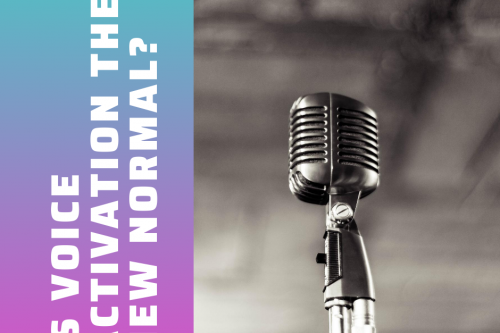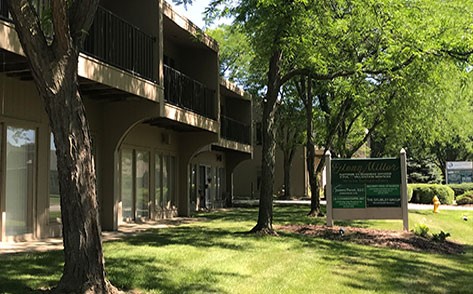Will voice tech be the post-crisis standard?
Reading Time:
2 minutes, 8 seconds
Will voice tech be the post-crisis standard?
Jumping Trout, LLC

(Entrepreneur, August 25, 2020) So I have a Google Home, and sometimes I ask it random things - things like, "what's the weather like outside?" or "how old is so-and-so?". Even my dad has one and uses it occasionally. I still use light swtiches and remotes manually (old fashioned, I know). But now it seems doing things manually is out of date. In a world where you can tell Alexa to darken a room, or Siri to play your music - why wouldn't you be hands free?
In today's new world, it actually makes more sense to stop touching surfaces anyway. Voice tech adoption has accelerated as the coronavirus pandemic makes everyone touchy about how sanitary it is to poke buttons and screens. But the reality is the 2020s were conditioned to be the decade of voice technology all along.
Now that we're to the point where we can ask our watch for nearby dinner recommendations, we should know how we got here. This technology required the integration of decades of advancements in AI-driven natural language processing, speech recognition, computing horsepower, and wireless networking, to name a few.
Voice is the ultimate user interface because it's not really UI, but part of what we are as humans and how we communicate. There's almost no learning curve required like there is when people take typing classes. Voice-enabled machines learn to adapt with our voices and behaviors and learn from us. Developing AI and related technologies is complex and costly, so mega-capitalized giants like Google, Apple, and Amazon have built the path - and they OWN that path.
The coronavirus pandemic has amplified the adoption of voice-enabled technology, with 36% of US smart-speaker owners reporting they've increased their use of their devices for news and information. Hygienic concerns are bringing contactless technologies like voice-controlled elevators out of fiction and into the real world.
This is a perfect example of how technology can make our lives easier. Giving us time to do other things, like hold on to basic human interaction (or what we can get of it). This tech doesn't mean you're lazy - we're mostly using it to set alarms or tell us sports scores. But it's the beginning of what could be possible. With the sale of smart speakers increasing 70% from 2018 to 2019, the more people use this technology, the more money companies will put into research. It won't be long before we have more advanced tasks for our machines.
Source: https://www.entrepreneur.com/article/354053
In today's new world, it actually makes more sense to stop touching surfaces anyway. Voice tech adoption has accelerated as the coronavirus pandemic makes everyone touchy about how sanitary it is to poke buttons and screens. But the reality is the 2020s were conditioned to be the decade of voice technology all along.
Now that we're to the point where we can ask our watch for nearby dinner recommendations, we should know how we got here. This technology required the integration of decades of advancements in AI-driven natural language processing, speech recognition, computing horsepower, and wireless networking, to name a few.
Voice is the ultimate user interface because it's not really UI, but part of what we are as humans and how we communicate. There's almost no learning curve required like there is when people take typing classes. Voice-enabled machines learn to adapt with our voices and behaviors and learn from us. Developing AI and related technologies is complex and costly, so mega-capitalized giants like Google, Apple, and Amazon have built the path - and they OWN that path.
The coronavirus pandemic has amplified the adoption of voice-enabled technology, with 36% of US smart-speaker owners reporting they've increased their use of their devices for news and information. Hygienic concerns are bringing contactless technologies like voice-controlled elevators out of fiction and into the real world.
This is a perfect example of how technology can make our lives easier. Giving us time to do other things, like hold on to basic human interaction (or what we can get of it). This tech doesn't mean you're lazy - we're mostly using it to set alarms or tell us sports scores. But it's the beginning of what could be possible. With the sale of smart speakers increasing 70% from 2018 to 2019, the more people use this technology, the more money companies will put into research. It won't be long before we have more advanced tasks for our machines.
Source: https://www.entrepreneur.com/article/354053
Posted In:

